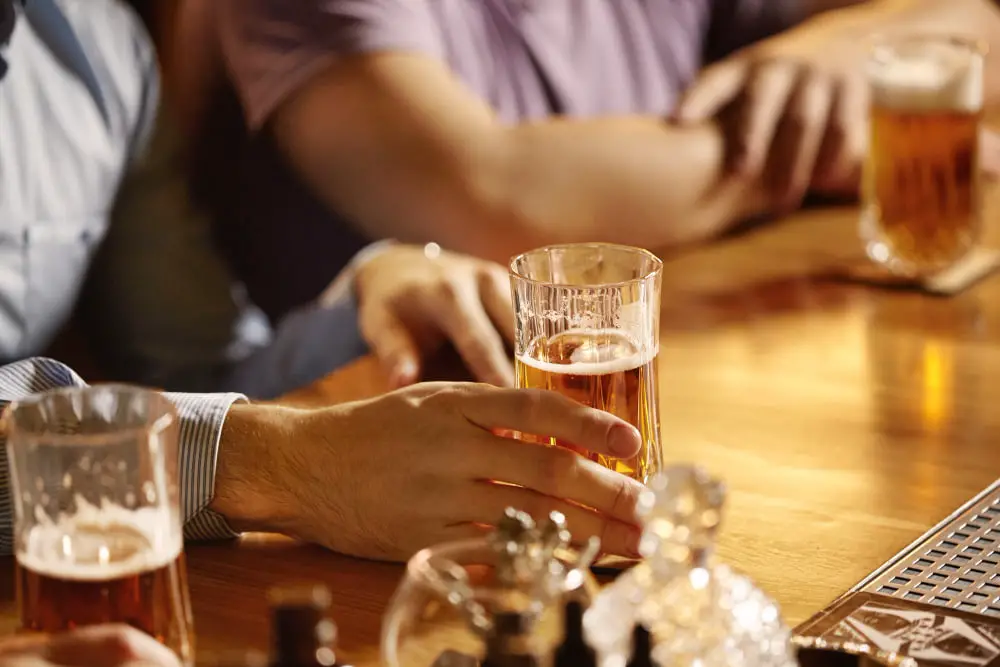Last updated on
Navigating the journey of recovery from alcohol addiction is a challenging and often arduous process. One of the harsh realities faced by individuals in recovery is the ever-present temptation of relapse. Understanding the factors contributing to relapse and developing effective strategies to cope with these challenges is crucial for maintaining sobriety.
This comprehensive exploration will delve into the relapse reality, examining its complexities and offering insights into how individuals can face and overcome the temptations associated with alcohol addiction.
The Dynamics of Relapse

Relapse, the return to alcohol use after a period of abstinence, is a common occurrence in the journey of recovery. It’s essential to recognize that alcohol relapse is not a sign of failure but rather a part of the recovery process for many individuals. Understanding the dynamics of relapse involves exploring the various factors that can contribute to the return to alcohol use.
- Triggers and High-Risk Situations:
- Environmental Triggers: Certain environments, people, or situations associated with past alcohol use can act as powerful triggers. These may include social gatherings, specific locations, or even certain smells.
- Emotional Triggers: Emotional distress, such as stress, anxiety, or depression, can significantly contribute to relapse. Individuals may turn to alcohol as a way to cope with overwhelming emotions.
- Negative Thinking Patterns:
- Self-Doubt and Low Self-Esteem: Negative thoughts about oneself and feelings of inadequacy can pave the way for relapse. Building and maintaining self-esteem are critical aspects of preventing negative thinking from spiraling into a return to alcohol use.
- Complacency: After a period of successful recovery, individuals may become complacent and believe they have overcome the risk of relapse. This false sense of security can be a dangerous mindset.
- Social Influences:
- Peer Pressure: Social circles that encourage alcohol use or do not support recovery efforts can be detrimental. Peer pressure to conform to old habits may pose a significant challenge for those in recovery.
- Lack of Support System: A lack of a robust support system, including friends, family, or a recovery community, can leave individuals feeling isolated and vulnerable to relapse.
Understanding these dynamics lays the groundwork for developing strategies to navigate the challenges and temptations associated with alcohol addiction.
Strategies for Facing Temptation
Facing the temptation of relapse requires a multi-faceted approach that addresses the psychological, emotional, and social aspects of recovery. Implementing effective strategies empowers individuals to cope with triggers and challenges, fostering resilience and a renewed commitment to sobriety.
- Cognitive-Behavioral Techniques: Cognitive-behavioral therapy (CBT) is a widely used approach to helping individuals identify and challenge negative thought patterns. By recognizing distorted thinking, individuals can replace harmful thoughts with more positive and rational ones. CBT equips individuals with practical coping strategies to manage stress, cravings, and negative emotions without resorting to alcohol use. This includes relaxation techniques, mindfulness, and practical problem-solving skills.
- Mindfulness and Meditation: Mindfulness practices encourage individuals to stay present in the moment. This heightened awareness helps in recognizing and managing cravings without succumbing to them. Mindfulness techniques have been shown to reduce stress, a common trigger for relapse. By incorporating regular mindfulness practices into daily life, individuals can build resilience to stressors.
- Building a Strong Support System: Engaging with recovery communities, such as support groups or 12-step programs, provides a sense of belonging and understanding. These communities offer support, guidance, and shared experiences, contributing to a resilient support system. Foster open communication with friends and family about the challenges of recovery. A trusted support network allows individuals to share their feelings, seek advice, and receive encouragement during difficult times.
- Healthy Lifestyle Choices: Physical activity has numerous benefits for mental health, including stress reduction and mood enhancement. Incorporating regular exercise into the routine can contribute to overall well-being and resilience in the face of temptation. Proper nutrition plays a vital role in supporting mental health and stability. A well-balanced diet helps regulate mood and energy levels, reducing the likelihood of turning to alcohol as a coping mechanism.
- Professional Counseling and Therapy: Working with a licensed therapist or counselor provides an individualized approach to addressing underlying issues contributing to addiction. Therapy can help individuals develop healthier coping mechanisms and better understand their triggers. Family therapy can strengthen relationships and create a supportive home environment by involving family members in the recovery process. Family therapy addresses communication patterns, sets boundaries, and fosters understanding.
- Relapse Prevention Planning: A personalized relapse prevention plan involves identifying specific triggers and warning signs that may precede relapse. Recognizing these signs early allows for proactive intervention. Having a set of emergency strategies in place, such as contacting a sponsor, attending a support group meeting, or reaching out to a trusted friend, provides individuals with immediate actions to take during intense temptation.
By integrating these strategies into their lives, individuals in recovery can strengthen their ability to face the reality of relapse and actively work towards maintaining long-term sobriety.
The Role of Relapse in the Recovery Journey

While relapse is a challenging aspect of the recovery journey, it’s essential to view it as a potential learning opportunity rather than a definitive setback. Understanding the role of relapse allows individuals to approach recovery with resilience, self-compassion, and a commitment to continuous growth.
Relapse offers insights into specific triggers and patterns that may require further attention. By examining the circumstances leading to relapse, individuals can better understand areas of vulnerability. A relapse can prompt a reassessment of existing recovery strategies. It may be necessary to modify coping mechanisms, seek additional support, or address unresolved issues through therapy.
Recovery is a dynamic and ongoing process, and setbacks are a natural part of the journey. Embracing imperfection and recognizing that setbacks do not negate progress can foster resilience and self-compassion. Each relapse provides an opportunity to refine and strengthen coping skills.
Over time, individuals can develop a robust set of tools to navigate challenges and resist the temptation of alcohol. Following a relapse, individuals may need to reevaluate their recovery goals.
This process involves setting realistic expectations, breaking down larger goals into manageable steps, and reaffirming a commitment to long-term sobriety. Engaging with a therapist or counselor after a relapse can be instrumental in regaining focus and addressing underlying issues. Professional guidance provides support in navigating the emotional aftermath of relapse.
The relapse reality in the journey of alcohol recovery is an intricate and challenging aspect that demands attention, understanding, and proactive strategies. By recognizing the dynamics of relapse, implementing effective coping mechanisms, and viewing setbacks as opportunities for growth, individuals can fortify their commitment to sobriety.
Facing alcohol’s temptation involves a combination of self-reflection, ongoing support from a strong network, professional guidance, and a commitment to cultivating a healthier lifestyle. The journey to recovery is unique for each individual, and acknowledging the relapse reality is a step towards building resilience, self-awareness, and lasting sobriety.
Recap




